Indigenous Governance Database
traditional knowledge
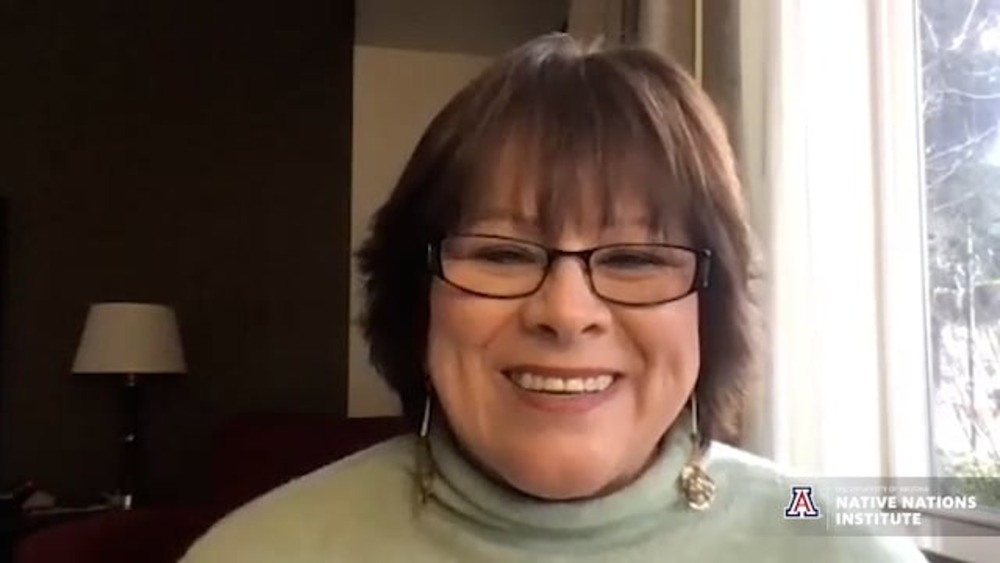
Indigenous Governance Speaker Series: How to Build a Nation with Susan Masten (Yurok)
Susan Masten (Yurok), former Chairwoman and valuable leader of the Yurok Tribe, joins the Native Nations Institute's Executive Director, Joan Timeche (Hopi), for an engaging discussion on Native nation building, specifically, how she actually helped build the nation. She was critical to the…
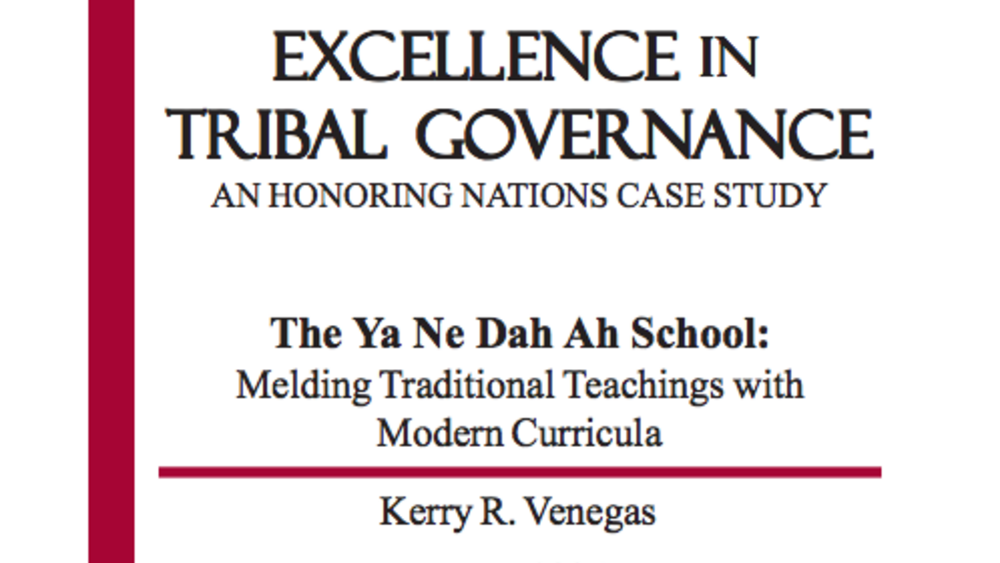
The Ya Ne Dah Ah School (Chickaloon): Melding Traditional Teachings with Modern Curricula
For many generations, education in American Indian/Alaskan Native (AI/AN) communities has been controlled by sources external to the communities and the people themselves. Large bureaucratic agencies, such as the Bureau of Indian Affairs (BIA) or public school systems overseen…
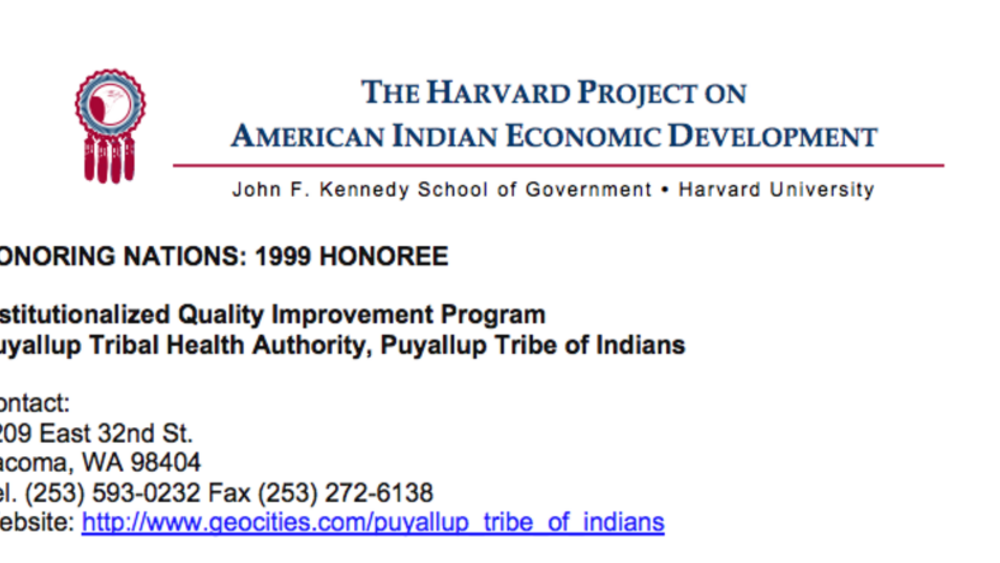
Puyallup's Institutionalized Quality Improvement Program
Following a major tribally-initiated restructuring in the early 1980s that created a quality improvement committee and a flatter organizational structure, the PTHA has increased patient access for urgent care visits, reduced "no show" rates, created clinical objectives, increased dental treatments…
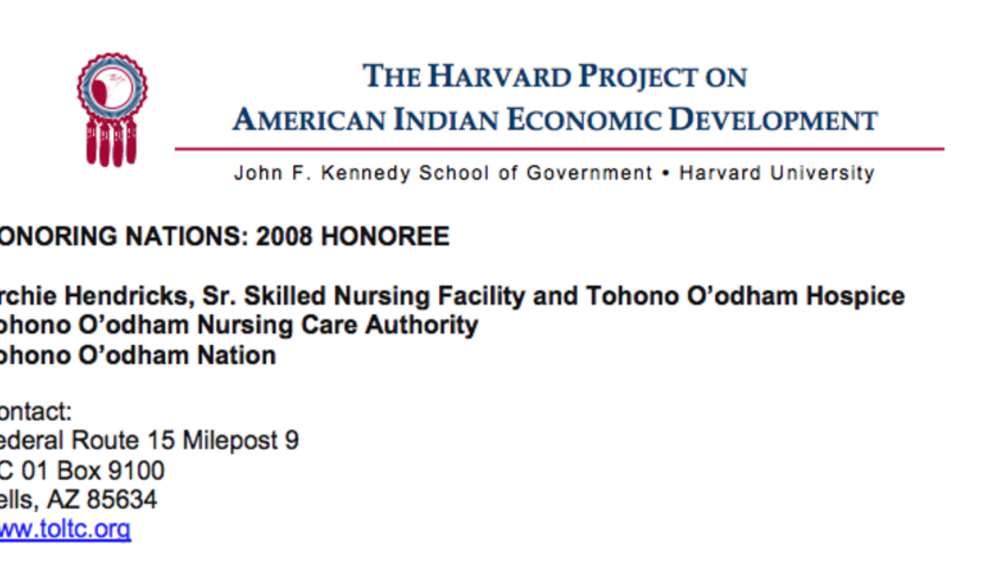
Archie Hendricks, Sr. Skilled Nursing Facility and Tohono O'odham Hospice
For decades Tohono O’odham elders in need of skilled nursing had to move far away from family and friends to receive care, or stay home and forgo long-term care services. However, with the opening of the Archie Hendricks, Sr. Skilled Nursing Facility, O’odham elders can now remain in the community…
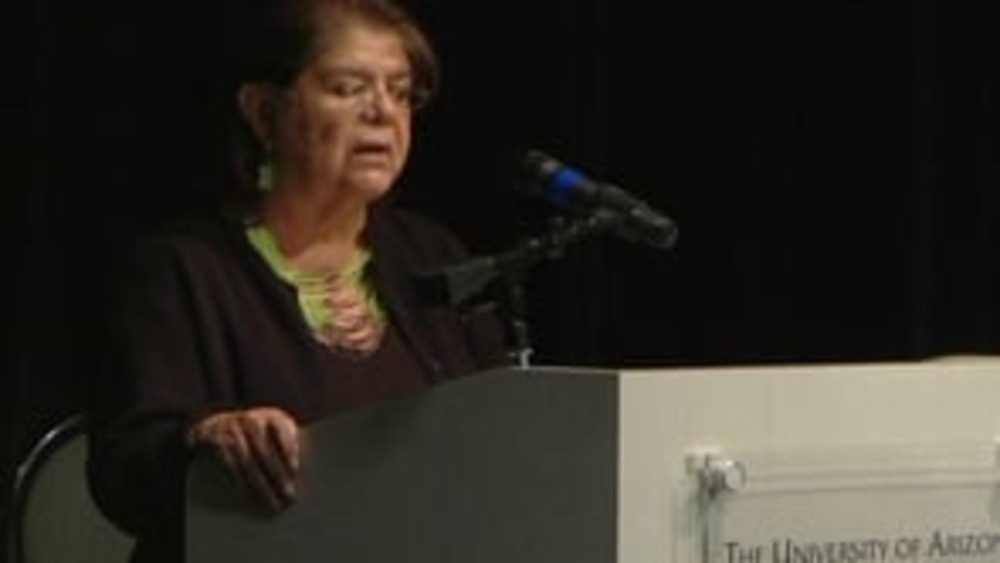
Wilma Mankiller: What it Means to be an Indigenous Person in the 21st Century: A Cherokee Woman's Perspective
Former Principal Chief of the Cherokee Nation Wilma Mankiller discusses the common misperceptions that people have about Indigenous people in the 21st century, and the efforts of Indigenous peoples to maintain their identity, cultures, values, and ways of life.
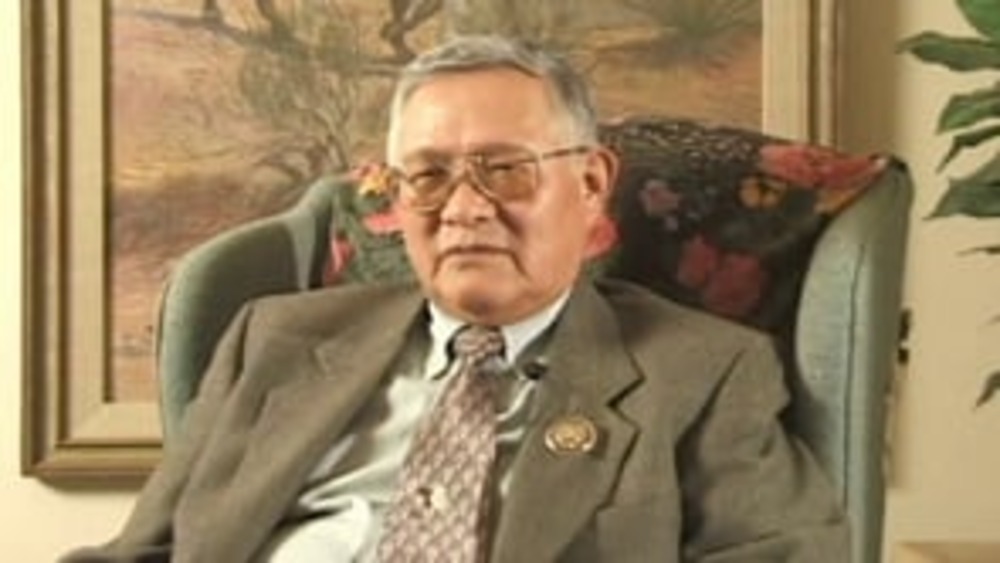
Great Tribal Leaders of Modern Times: Edward T. Begay
Produced by the Institute for Tribal Government at Portland State University in 2004, the landmark “Great Tribal Leaders of Modern Times” interview series presents the oral histories of contemporary leaders who have played instrumental roles in Native nations' struggles for sovereignty, self-…
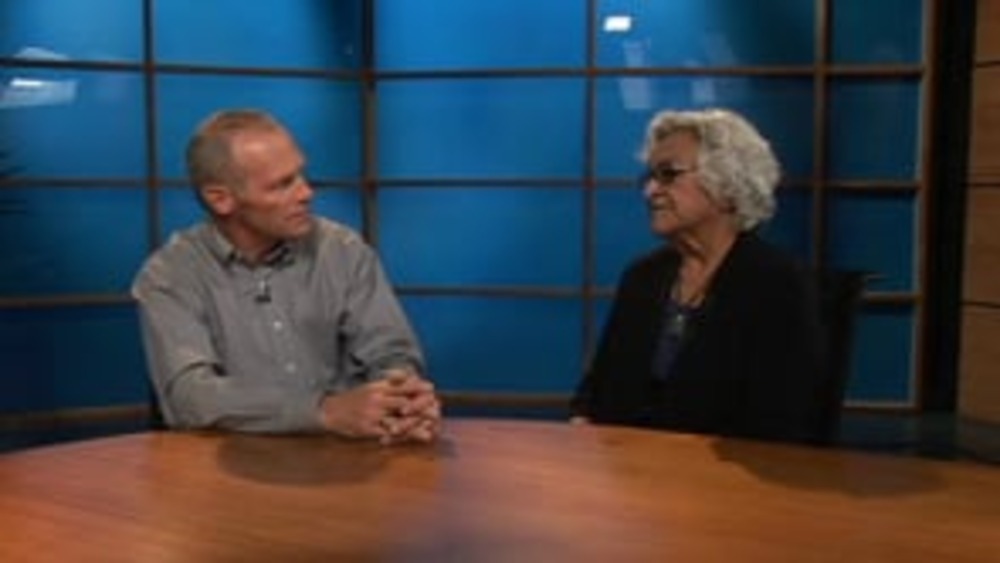
Frances Stout: Archie Hendricks, Sr. Skilled Nursing Facility and Tohono O'odham Hospice
In this interview with the Harvard Project on American Indian Economic Development's Joseph P. Kalt, Frances Stout of the Tohono O'odham Nursing Care Authority discusses what led the Tohono O'odham Nation to establish the Archie Hendricks, Sr. Skilled Nursing Facility and Tohono O'odham…
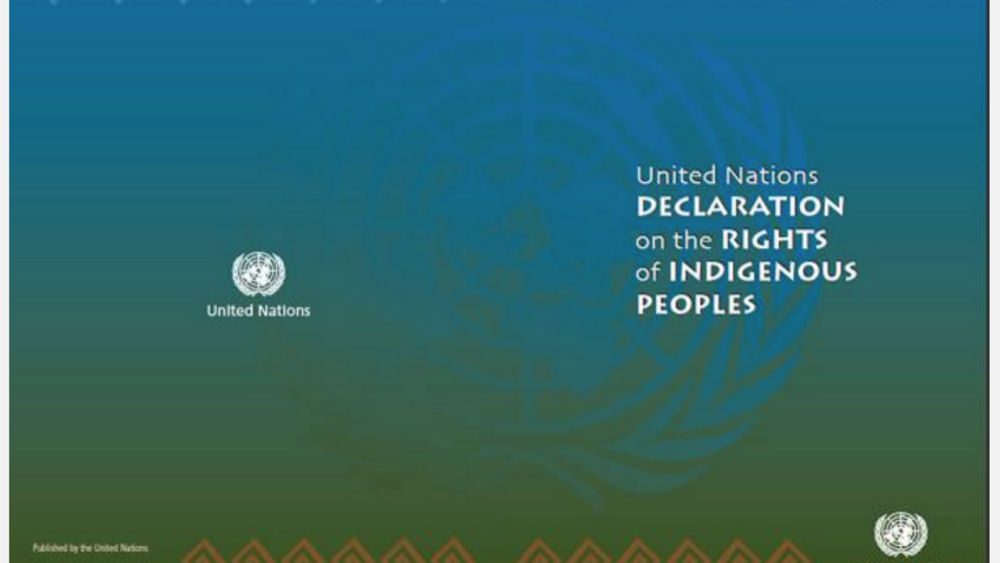
People Belong to the Land; Land Doesn't Belong to the People
The United Nations Declaration on the Rights of Indigenous Peoples (UNDRIP) does not recognize the right of indigenous nations to own land outside the laws and rules of national governments. According to international historical doctrines of discovery, Indigenous Peoples, non-Christian nations,…
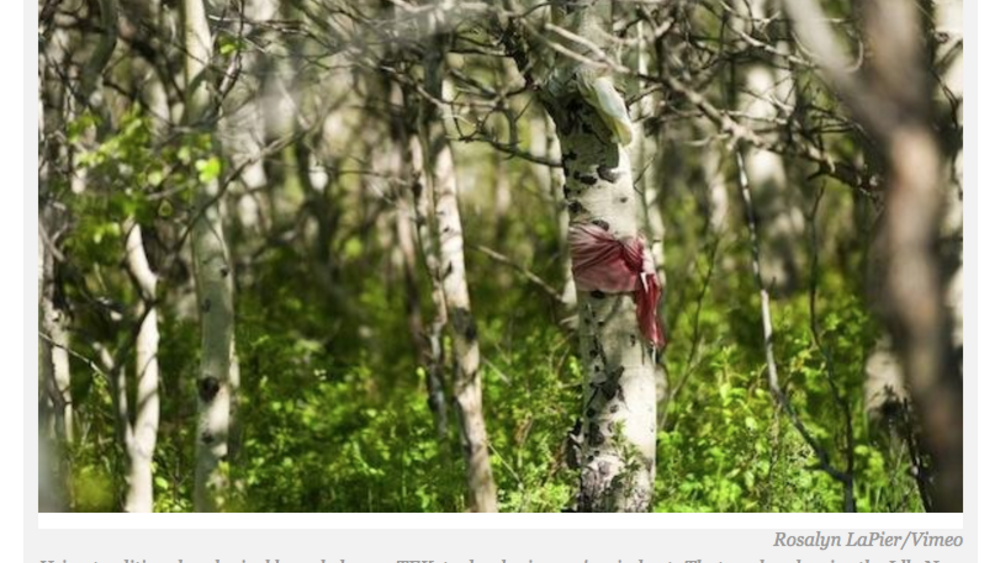
Idle No More: Decolonizing Water, Food and Natural Resources With TEK
Watersheds and Indigenous Peoples know no borders. Canada’s watershed management affects America’s watersheds, and vice versa. As Canada Prime Minister Stephen Harper launches significant First Nations termination contrivance he negotiates legitimizing Canada’s settler colonialism under the guise…
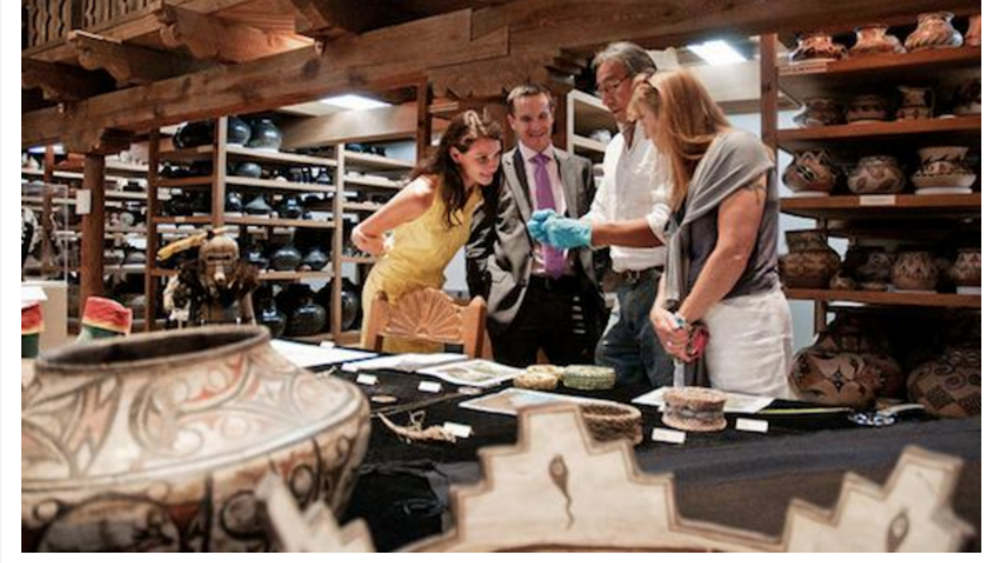
Radical New Way to 'Museum': A:shiwi A:wan Museum and Heritage Center
Many people think of museums as dusty, static, boring places. They’re where you go if you want to see old bones, old artifacts, and the odd diorama. They’re not living, breathing spaces where cultures come alive. Enter the A:shiwi A:wan Museum and Heritage Center in Zuni, New Mexico, which has…
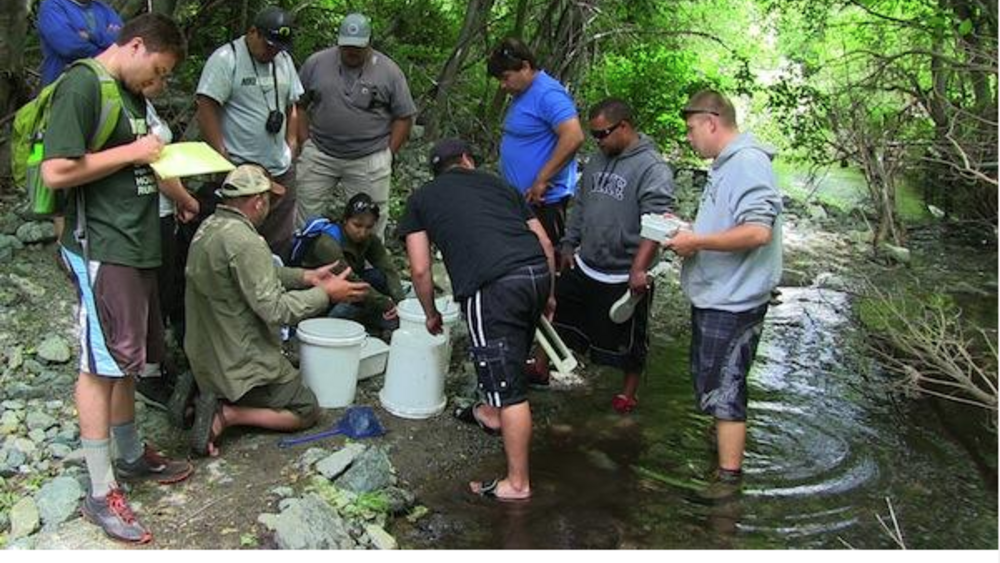
Klamath Youth Program Melding Science and Traditional Knowledge Wins National Award
A unique collaboration between a Klamath youth leadership development program and U.S. government researchers has won the U.S. Department of the Interior’s Partners in Conservation award for its use of traditional knowledge in conjunction with modern science. The Klamath Tribal Leadership…
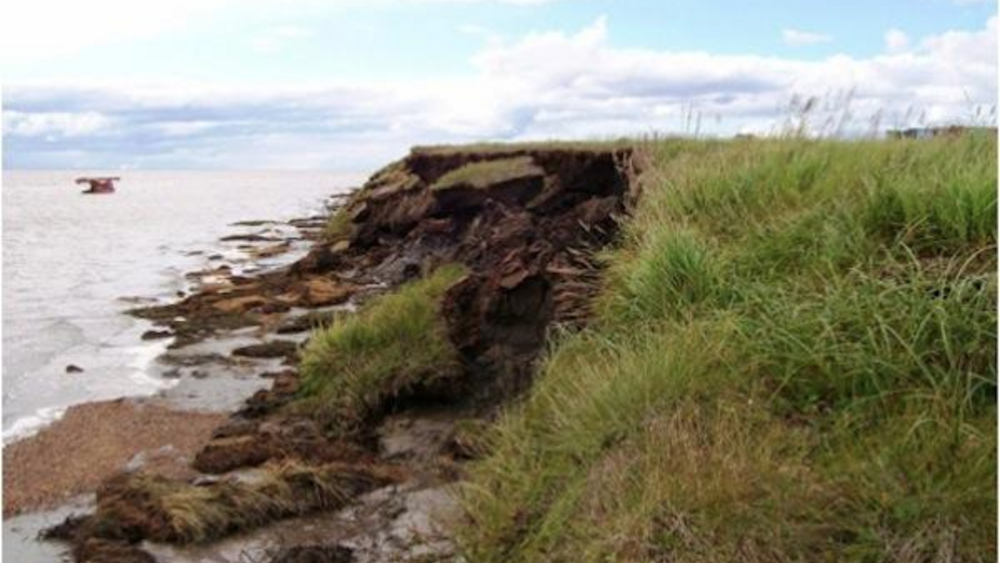
8 Tribes That Are Way Ahead of the Climate-Adaptation Curve
Much has been made of the need to develop climate-change-adaptation plans, especially in light of increasingly alarming findings about how swiftly the environment that sustains life as we know it is deteriorating, and how the changes compound one another to quicken the pace overall. Studies, and…
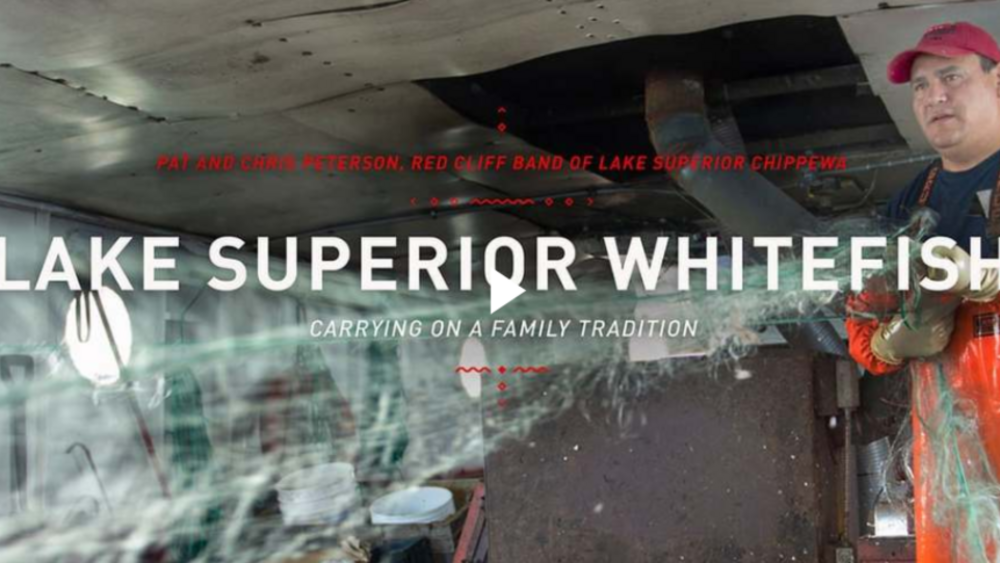
The Ways: Lake Superior Whitefish: Carrying on a Family Tradition
The Petersons are part of a long tradition of commercial fishing among Lake Superior tribes. Avid fishermen for subsistence prior to European settlement, the Lake Superior Chippewa quickly found Gichigami’s (Ojibwe word for Lake Superior) fish to be a valued trade item once explorers penetrated to…
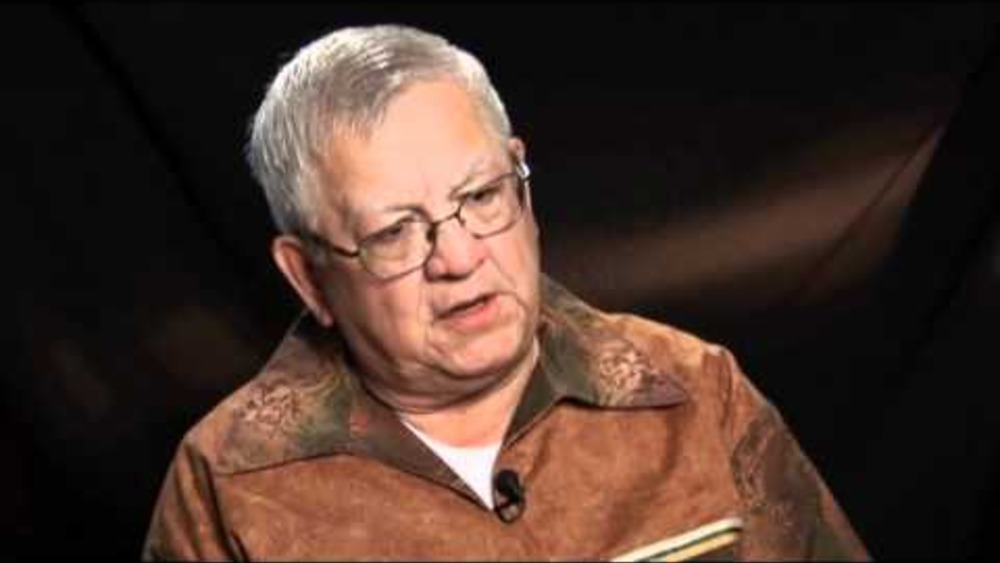
Tradition and Governance: Ron Thomas
Ron Thomas from Haudenosaunee / Six Nations talks about Haudenosaunee traditional governance, and the challenges of removing the Indian Act and replacing it with more traditional governance.
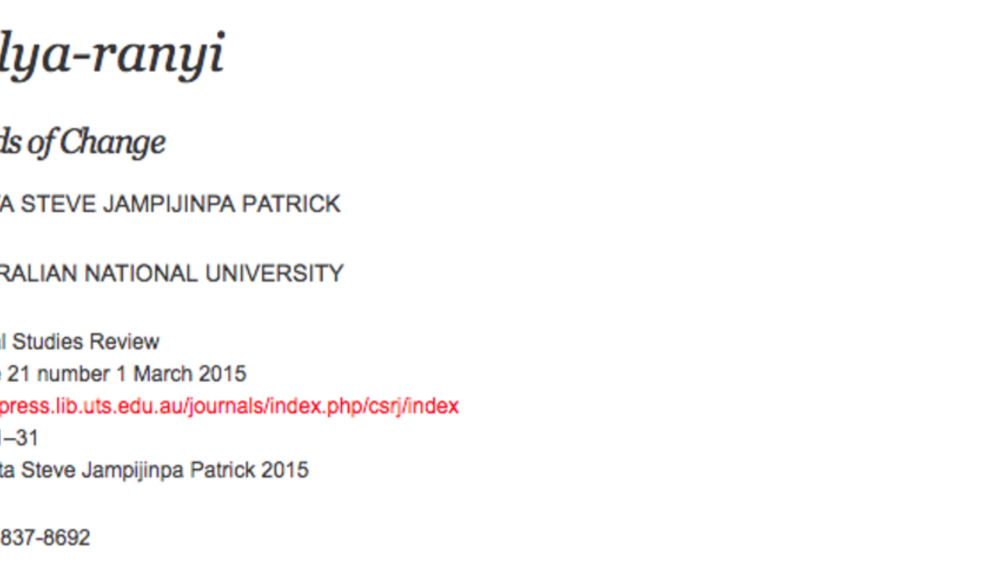
Pulya-ranyi: Winds of Change
Milpirri is a Warlpiri way to get country to express itself. Country is expressing itself all the time. All around Australia, Indigenous people, culture and art express (in various forms) what animals, plants and the elements, including weather and the seasons themselves—look like and speak like…
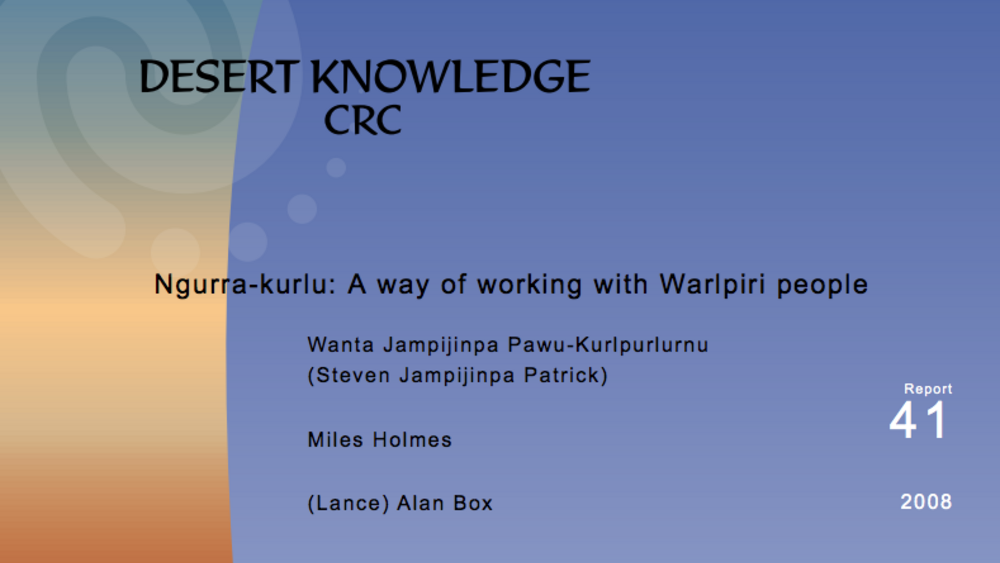
Ngurra-kurlu: A way of working with Warlpiri people
Ngurra-kurlu is a representation of the five key elements of Warlpiri culture: Land (also called Country), Law, Language, Ceremony, and Skin (also called Kinship). It is a concept that highlights the primary relationships between these elements, while also creating an awareness of their deeper…
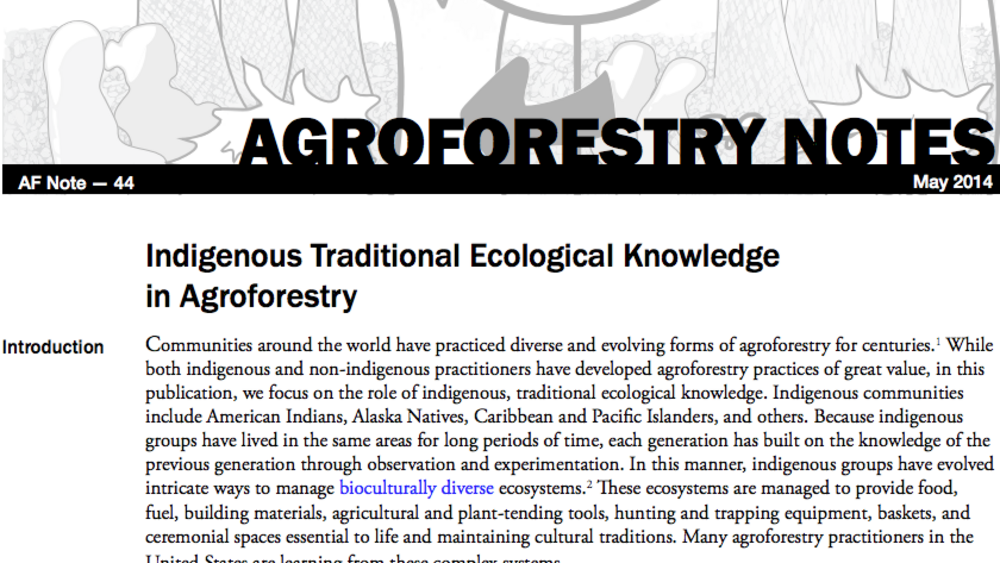
Indigenous Traditional Ecological Knowledge in Agroforestry
Communities around the world have practiced diverse and evolving forms of agroforestry for centuries. While both Indigenous and non-Indigenous practitioners have developed agroforestry practices of great value, in this publication, we focus on the role of Indigenous, traditional ecological…
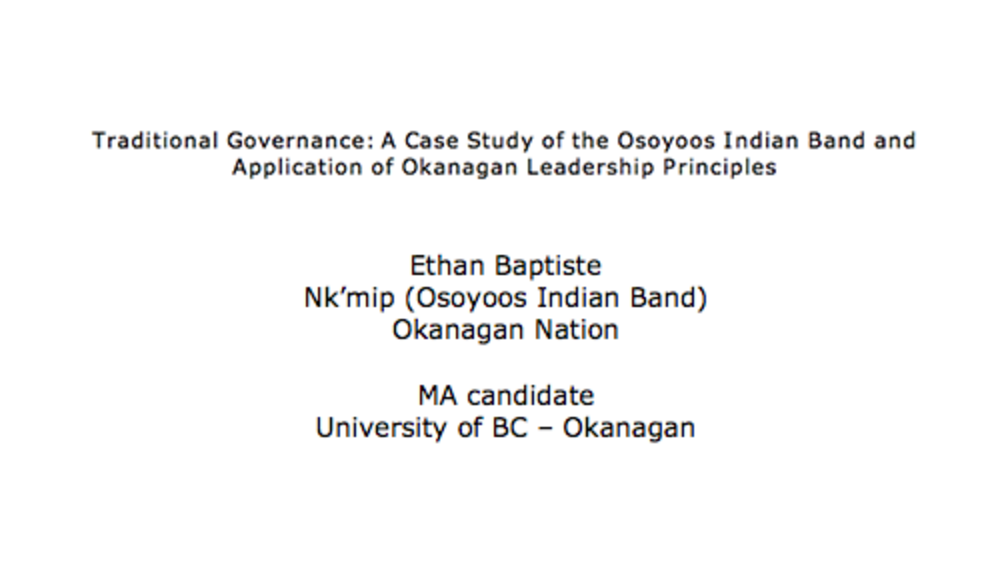
Traditional Governance: A Case Study of the Osoyoos Indian Band and Application of Okanagan Leadership Principles
There are traditional Okanagan governance and leadership principles and guidelines that have been informed through language terms and traditional stories. These have been interpreted and taught to us by our elders of the Okanagan Nation. Five principles of traditional Okanagan leadership will be…
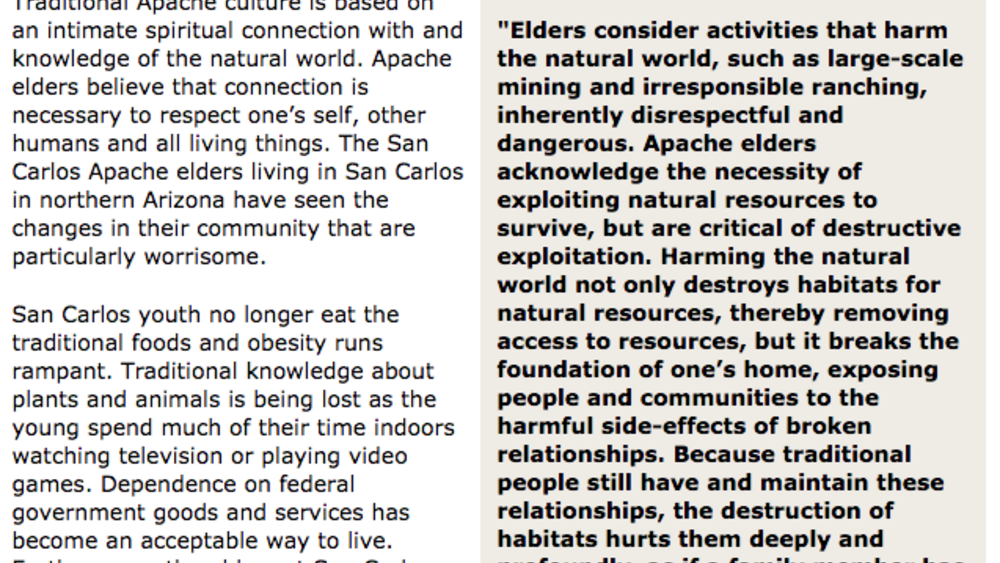
Best Practices Case Study (Cultural Alignment of Institutions): San Carlos Apache
Traditional Apache culture is based on an intimate spiritual connection with and knowledge of the natural world. Apache elders believe that connection is necessary to respect one’s self, other humans and all living things. The San Carlos Apache elders living in San Carlos in northern Arizona have…
